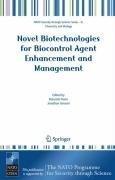| Listing 1 - 10 of 15 | << page >> |
Sort by
|

ISBN: 0849328950 9780849328954 9780429125584 9781466545342 Year: 2005 Publisher: Boca Raton (Fla.) : Taylor & Francis,
Abstract | Keywords | Export | Availability | Bookmark
 Loading...
Loading...Choose an application
- Reference Manager
- EndNote
- RefWorks (Direct export to RefWorks)
Crops --- Pollination. --- Transgenic plants. --- Basic Sciences. Molecular Biology --- Genetic engineering. --- Plant Molecular Biology --- GEN Genetics & Population Genetics --- transgenic plants --- genetic engineering --- crops --- food safety --- pollination --- symposium proceedings --- Plant Molecular Biology.
Book
Year: 2020 Publisher: Johns Hopkins University Press
Abstract | Keywords | Export | Availability | Bookmark
 Loading...
Loading...Choose an application
- Reference Manager
- EndNote
- RefWorks (Direct export to RefWorks)
As the world’s population rises to an expected ten billion in the next few generations, the challenges of feeding humanity and maintaining an ecological balance will dramatically increase. Today we rely on just four crops for 80 percent of all consumed calories: wheat, rice, corn, and soybeans. Indeed, reliance on these four crops may also mean we are one global plant disease outbreak away from major famine. In this revolutionary and controversial book, Jonathan Gressel argues that alternative plant crops lack the genetic diversity necessary for wider domestication and that even the Big Four have reached a “genetic glass ceiling”: no matter how much they are bred, there is simply not enough genetic diversity available to significantly improve their agricultural value. Gressel points the way through the glass ceiling by advocating transgenics—a technique where genes from one species are transferred to another. He maintains that with simple safeguards the technique is a safe solution to the genetic glass ceiling conundrum. Analyzing alternative crops—including palm oil, papaya, buckwheat, tef, and sorghum—Gressel demonstrates how gene manipulation could enhance their potential for widespread domestication and reduce our dependency on the Big Four. He also describes a number of ecological benefits that could be derived with the aid of transgenics. A compelling synthesis of ideas from agronomy, medicine, breeding, physiology, population genetics, molecular biology, and biotechnology, Genetic Glass Ceilings presents transgenics as an inevitable and desperately necessary approach to securing and diversifying the world's food supply.
Crop improvement. --- Plant diversity. --- Transgenic plants. --- Crops --- Ecological science, the Biosphere --- Genetic engineering.
Book
ISBN: 1421427761 1421429136 Year: 2020 Publisher: Johns Hopkins University Press
Abstract | Keywords | Export | Availability | Bookmark
 Loading...
Loading...Choose an application
- Reference Manager
- EndNote
- RefWorks (Direct export to RefWorks)
Book
Year: 2020 Publisher: Johns Hopkins University Press
Abstract | Keywords | Export | Availability | Bookmark
 Loading...
Loading...Choose an application
- Reference Manager
- EndNote
- RefWorks (Direct export to RefWorks)
As the world’s population rises to an expected ten billion in the next few generations, the challenges of feeding humanity and maintaining an ecological balance will dramatically increase. Today we rely on just four crops for 80 percent of all consumed calories: wheat, rice, corn, and soybeans. Indeed, reliance on these four crops may also mean we are one global plant disease outbreak away from major famine. In this revolutionary and controversial book, Jonathan Gressel argues that alternative plant crops lack the genetic diversity necessary for wider domestication and that even the Big Four have reached a “genetic glass ceiling”: no matter how much they are bred, there is simply not enough genetic diversity available to significantly improve their agricultural value. Gressel points the way through the glass ceiling by advocating transgenics—a technique where genes from one species are transferred to another. He maintains that with simple safeguards the technique is a safe solution to the genetic glass ceiling conundrum. Analyzing alternative crops—including palm oil, papaya, buckwheat, tef, and sorghum—Gressel demonstrates how gene manipulation could enhance their potential for widespread domestication and reduce our dependency on the Big Four. He also describes a number of ecological benefits that could be derived with the aid of transgenics. A compelling synthesis of ideas from agronomy, medicine, breeding, physiology, population genetics, molecular biology, and biotechnology, Genetic Glass Ceilings presents transgenics as an inevitable and desperately necessary approach to securing and diversifying the world's food supply.
Crop improvement. --- Plant diversity. --- Transgenic plants. --- Crops --- Genetic engineering. --- Ecological science, the Biosphere
Book
Year: 2020 Publisher: Johns Hopkins University Press
Abstract | Keywords | Export | Availability | Bookmark
 Loading...
Loading...Choose an application
- Reference Manager
- EndNote
- RefWorks (Direct export to RefWorks)
As the world’s population rises to an expected ten billion in the next few generations, the challenges of feeding humanity and maintaining an ecological balance will dramatically increase. Today we rely on just four crops for 80 percent of all consumed calories: wheat, rice, corn, and soybeans. Indeed, reliance on these four crops may also mean we are one global plant disease outbreak away from major famine. In this revolutionary and controversial book, Jonathan Gressel argues that alternative plant crops lack the genetic diversity necessary for wider domestication and that even the Big Four have reached a “genetic glass ceiling”: no matter how much they are bred, there is simply not enough genetic diversity available to significantly improve their agricultural value. Gressel points the way through the glass ceiling by advocating transgenics—a technique where genes from one species are transferred to another. He maintains that with simple safeguards the technique is a safe solution to the genetic glass ceiling conundrum. Analyzing alternative crops—including palm oil, papaya, buckwheat, tef, and sorghum—Gressel demonstrates how gene manipulation could enhance their potential for widespread domestication and reduce our dependency on the Big Four. He also describes a number of ecological benefits that could be derived with the aid of transgenics. A compelling synthesis of ideas from agronomy, medicine, breeding, physiology, population genetics, molecular biology, and biotechnology, Genetic Glass Ceilings presents transgenics as an inevitable and desperately necessary approach to securing and diversifying the world's food supply.
Crop improvement. --- Plant diversity. --- Transgenic plants. --- Crops --- Genetic engineering. --- Ecological science, the Biosphere

ISBN: 9781402057977 1402057970 1402057989 9786610902019 1280902019 1402057997 Year: 2007 Publisher: Dordrecht : Springer,
Abstract | Keywords | Export | Availability | Bookmark
 Loading...
Loading...Choose an application
- Reference Manager
- EndNote
- RefWorks (Direct export to RefWorks)
The intent of the NATO Advanced Study Institute (ASI) entitled “Novel Biotechnologies for Biocontrol Agent Enhancement and Management” was to permit the meeting of the major exponents in the scienti?c community working with enhancing different biological control agents (fungi, bacteria, virus, nematodes, and insects) on different targets (pathogens, insects, weeds, and rodents). This multidisciplinary group, having backgrounds in the different aspects of biotechnologies (transgenic enhancement, molecular biology, formulation, genetics, risk assessment, new technology, biochemistry, and physiology), presented highly advanced lectures during the 10-day-ASI, in order to allow students to improve their capability to enhance and manage biological control agents. This approach will allow ASI attendees to bring new ideas, new approaches, or new methodologies coming from different fields of application to their own field of expertise. A further aim of the NATO ASI was to create a network of young and experienced scientists, with few geographical barriers among countries, who will develop new opportunities to collaborate in this field of science that requires a “global” collaborative approach. Forty students from twenty countries took part to the NATO ASI. In addition to the 45 lectures from the 15 lecturers, there were 25 short presentations and 8 posters on cogent research from students in this course, held between September 8- 2006 and September 19, 2006.
Biological pest control agents -- Congresses. --- Pests -- Biological control -- Congresses. --- Weeds -- Biological control -- Congresses. --- Weeds -- Control -- Molecular aspects -- Congresses. --- Biochemical engineering. --- Pests --- Control. --- Chemical control of pests --- Control of pests --- Eradication of pests --- Extermination of pests --- Pest control --- Pest eradication --- Pest extermination --- Pest management --- Bio-process engineering --- Bioprocess engineering --- Chemical control --- Eradication --- Extermination --- Management --- Chemistry. --- Biotechnology. --- Genetic engineering. --- Agriculture. --- Plant pathology. --- Plant Pathology. --- Genetic Engineering. --- Biochemistry --- Biotechnology --- Chemical engineering --- Plant diseases. --- Farming --- Husbandry --- Industrial arts --- Life sciences --- Food supply --- Land use, Rural --- Genetic engineering --- Designed genetic change --- Engineering, Genetic --- Gene splicing --- Genetic intervention --- Genetic surgery --- Genetic recombination --- Transgenic organisms --- Botany --- Communicable diseases in plants --- Crop diseases --- Crops --- Diseases of plants --- Microbial diseases in plants --- Pathological botany --- Pathology, Vegetable --- Phytopathology --- Plant pathology --- Plants --- Vegetable pathology --- Agricultural pests --- Crop losses --- Diseased plants --- Phytopathogenic microorganisms --- Plant pathologists --- Plant quarantine --- Pathology --- Diseases and pests --- Diseases --- Wounds and injuries
Digital
ISBN: 9781402057991 Year: 2007 Publisher: Dordrecht Springer
Abstract | Keywords | Export | Availability | Bookmark
 Loading...
Loading...Choose an application
- Reference Manager
- EndNote
- RefWorks (Direct export to RefWorks)

ISBN: 0801887194 9780801887192 Year: 2008 Publisher: Baltimore Johns Hopkins university press
Abstract | Keywords | Export | Availability | Bookmark
 Loading...
Loading...Choose an application
- Reference Manager
- EndNote
- RefWorks (Direct export to RefWorks)
Crop improvement --- Crops --- Plant diversity --- Transgenic plants --- Genetic engineering

ISBN: 1281121851 9786611121853 9812771506 9789812771506 9789812707086 9812707085 9781281121851 6611121854 Year: 2007 Publisher: New Jersey : World Scientific,
Abstract | Keywords | Export | Availability | Bookmark
 Loading...
Loading...Choose an application
- Reference Manager
- EndNote
- RefWorks (Direct export to RefWorks)
Witchweeds (Striga species) decimate agriculture in much of Africa and parts of Asia, attacking the major cereal grains and legumes, and halving the already very low yields of subsistence farmers. Several years of research have provided promising technologies, based on the fundamental biology of the parasite-host associations, for dealing with this scourge. However, there is an apparent realization that these technologies will fail because highly successful weeds such as Striga evolve resistance to all types of controls unless proven methods are integrated with each other for a more sustainabl
Weeds --- Witchweeds --- Integrated control.
Book
Abstract | Keywords | Export | Availability | Bookmark
 Loading...
Loading...Choose an application
- Reference Manager
- EndNote
- RefWorks (Direct export to RefWorks)
Herbicide resistance --- Plants --- Weeds --- Effect of herbicides on
| Listing 1 - 10 of 15 | << page >> |
Sort by
|

 Search
Search Feedback
Feedback About
About Help
Help News
News